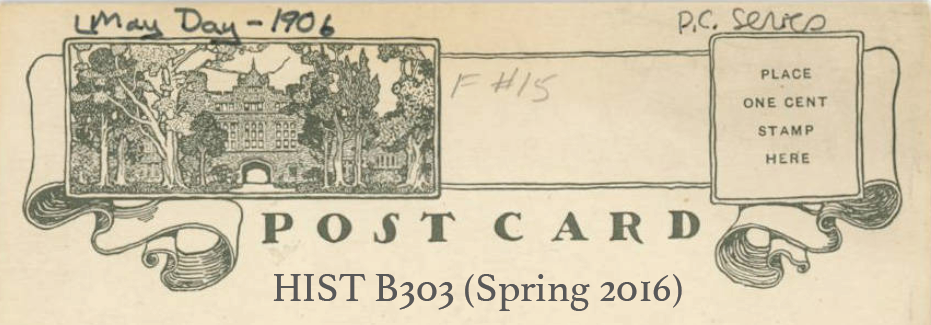Benjamin Filene’s Passionate Histories: “Outsider” History-Makers and What They Teach Us was an interesting, but intensely irritating read. Yes, he does spend part of the article discussing the merits of the methods used by those who work with historical topics without an academic foundation in history, which he calls “outsider” history-makers. However, he spends the vast majority of the article deriding and dismissing their focus and their work, lumping all such “outsiders” in a small handful of generalized groups, to the exclusion of many. My overall irritation stemmed from his assumed “right” to call non-academic enthusiasts “outsiders,” as if those without an academic foundation specifically in history could not possibly do their work with as much intellectual rigor as those with such foundation. Filene argues that “outsiders don’t particularly care about any of these standards,” such as “originality, evidence, and context.” (19) That is simply not true.
Take his discussion of re-enactors for example. He asserts that “re-enacting is driven by a fantasy” and their motivation is the same as the draw to Disney’s Main Street. (18) (Don’t even get me started on that point. Main Street U.S.A. was never meant to be a reenactment of anything; it was designed as an intentionally idealized homage to Walt Disney’s home town.) I have personally spent a great deal of time with a Civil War re-enactor. His, and his group’s, draw to the historical time period had nothing really to do with history. They were gun enthusiasts fascinated by the specific weaponry of a specific era. In contrast, I subscribe to a handful of channels on youtube, created by individuals that Filene would lump in the same category as the disparaged re-enactors, for re-enact they do. Just not on youtube. Instead, their videos describe ways of life, death, warfare, and culture during their chosen historical time period. The depth of their research is tremendous and their rigor is strenuous. Some of it comes from first-hand experience. You’re not going to find an archive document on why cloaks are so bloody useful, but you’ll figure it out pretty quick when you’re standing in torrential rain and are still warm and dry. The majority of their information, however, comes from research that would rival any academic historian.
While I do agree with Filene that academic historians have a lot to learn from the approaches taken by what he calls “outsider” history-makers, I bristle at his suggestion that academics can take those approaches and make them “better” or “correct” by applying academic rigor he assumes to be missing. While it is not present in all circumstances, he is doing a disservice to those non-academic historians who are putting in the effort and research. There is nothing wrong with a narrow focus, if it is taken in context and researched adequately.
